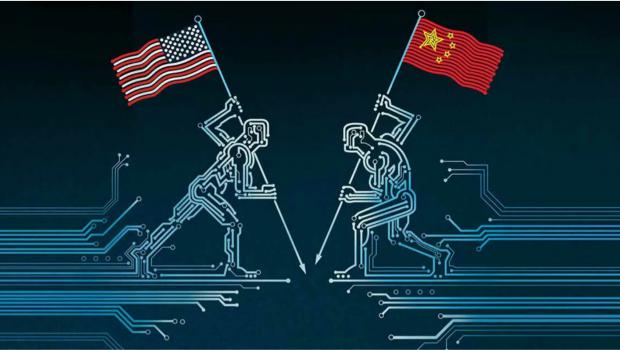
Breaking News
 War on Words: Both Parties Try to Silence Speech They Don't Like
War on Words: Both Parties Try to Silence Speech They Don't Like
 Low Interest Rates Don't Have the Stimulus the Economy Craves
Low Interest Rates Don't Have the Stimulus the Economy Craves
 "What's About To Happen Is Not A Coincidence" | Whitney Webb
"What's About To Happen Is Not A Coincidence" | Whitney Webb
 Future of Satellite of Direct to Cellphone
Future of Satellite of Direct to Cellphone
Top Tech News
 3D Printed Aluminum Alloy Sets Strength Record on Path to Lighter Aircraft Systems
3D Printed Aluminum Alloy Sets Strength Record on Path to Lighter Aircraft Systems
 Big Brother just got an upgrade.
Big Brother just got an upgrade.
SEMI-NEWS/SEMI-SATIRE: October 12, 2025 Edition
 Stem Cell Breakthrough for People with Parkinson's
Stem Cell Breakthrough for People with Parkinson's
 Linux Will Work For You. Time to Dump Windows 10. And Don't Bother with Windows 11
Linux Will Work For You. Time to Dump Windows 10. And Don't Bother with Windows 11
 XAI Using $18 Billion to Get 300,000 More Nvidia B200 Chips
XAI Using $18 Billion to Get 300,000 More Nvidia B200 Chips
 Immortal Monkeys? Not Quite, But Scientists Just Reversed Aging With 'Super' Stem Cells
Immortal Monkeys? Not Quite, But Scientists Just Reversed Aging With 'Super' Stem Cells
 ICE To Buy Tool That Tracks Locations Of Hundreds Of Millions Of Phones Every Day
ICE To Buy Tool That Tracks Locations Of Hundreds Of Millions Of Phones Every Day
 Yixiang 16kWh Battery For $1,920!? New Design!
Yixiang 16kWh Battery For $1,920!? New Design!
 Find a COMPATIBLE Linux Computer for $200+: Roadmap to Linux. Part 1
Find a COMPATIBLE Linux Computer for $200+: Roadmap to Linux. Part 1
"What's About To Happen Is Not A Coincidence" | Whitney Webb

Spearheaded by former Google CEO Eric Schmidt, the National Security Commission on AI proposed aggressive measures to close the data gap between American and Chinese tech ecosystems. Their logic? China's massive population generates exponentially more data, feeding state-run AI systems with an efficiency the U.S. currently can't match. To catch up, the commission suggested reshaping American life—shifting away from in-person shopping and healthcare, ending car ownership in favor of AI-managed ride fleets, and integrating AI into every aspect of public and private life.
What began as a national security imperative edges dangerously close to social engineering. The fear of falling behind China is being used to justify data-harvesting policies that threaten to erode personal freedom, human agency, and real-world social bonds. Meanwhile, tech oligarchs with ties to both American intelligence and Chinese industry stand to benefit from a future where every human action is digitized, surveilled, and monetized. The implications for children, families, and civic life are profound—and possibly irreversible—if the trajectory continues unchecked.



